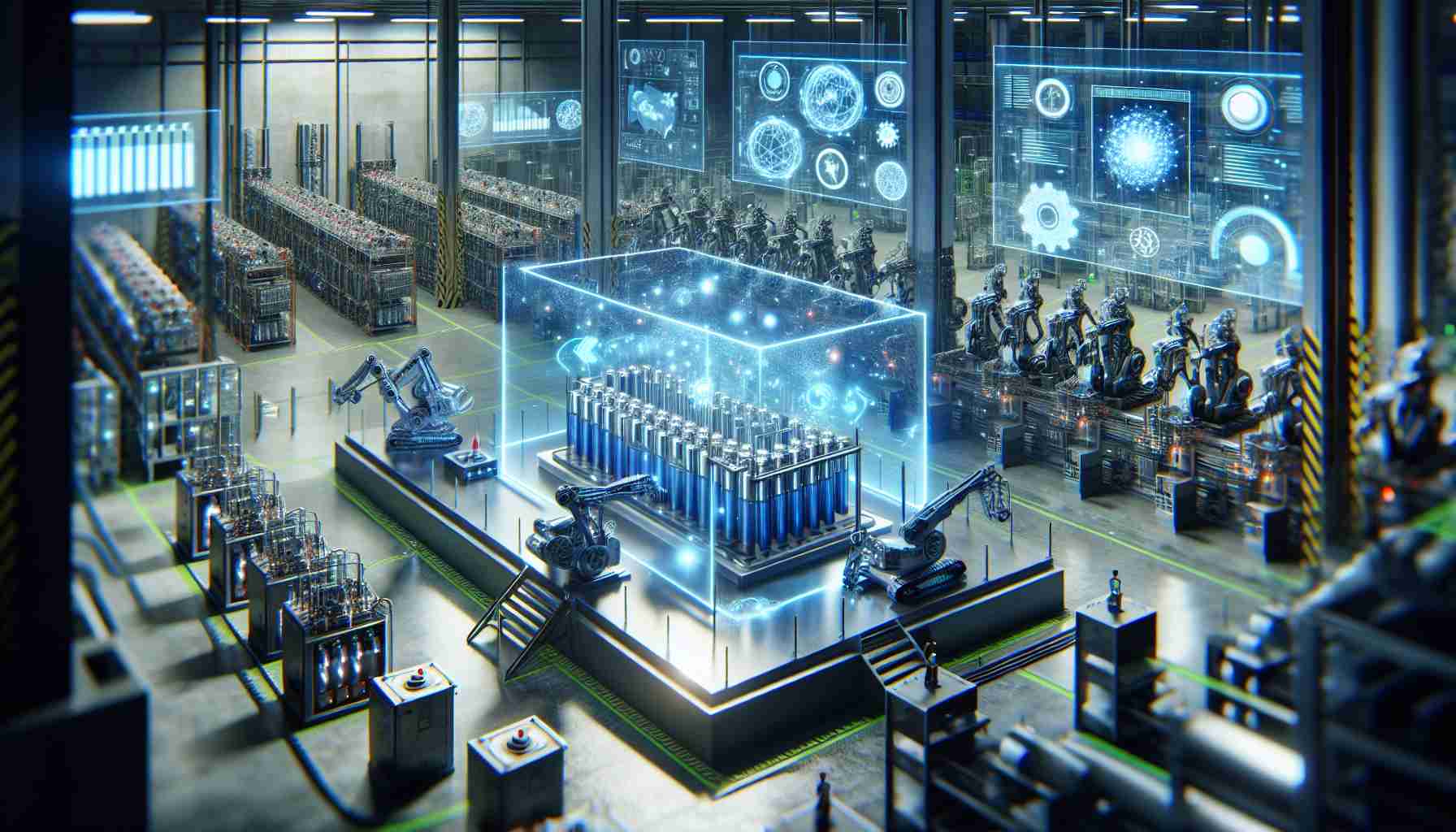- Apptronik has received a $350 million investment to enhance its humanoid robot, Apollo, with contributions from B Capital, Capital Factory, and Google.
- The funding supports Apollo’s advancement in various industries, including manufacturing, logistics, and healthcare, leveraging AI for transformative applications.
- Apptronik’s revolutionary approach combines cutting-edge AI with human-centered design, emphasizing intuitive interaction and collaboration.
- Unique actuation technology enables affordability and scalability, crucial for mass production and widespread adoption of Apollo.
- High demand for Apollo is driving Apptronik’s expansion, backed by partnerships with industry leaders like NASA and Google DeepMind.
- From its origins at the University of Texas at Austin, Apptronik envisions a future where robots become essential partners in societal progress.
A watershed moment has arrived for Apptronik, the visionary force behind the humanoid robot known as Apollo. Infused with a substantial $350 million boost from a recent funding round led by B Capital and Capital Factory, and underscored by Google’s support, Apptronik is set to redefine the landscape of robotics.
With these new resources, Apptronik embarks on an accelerated journey to elevate Apollo’s capabilities. Imagine a future where AI-powered humanoids seamlessly navigate bustling factories, adroitly manage logistics, and compassionately assist in eldercare. Apollo’s evolution promises an array of transformative applications across diverse industries—from the complexities of automotive assembly to the meticulous tasks of healthcare.
Apptronik’s approach is nothing short of revolutionary, focusing on designing humanoid robots that meld cutting-edge AI with an intuitive, human-centered experience. The heart of this transformation lies in Apptronik’s unique actuation technology, a marvel that ensures affordability and lays the groundwork for mass production. As Apollo becomes a familiar presence in workplaces, its user-friendly design aims to foster collaboration between humans and machines.
The demand for Apollo has been nothing short of extraordinary. Apptronik finds itself scaling up to meet this surge, prepared to deliver swathes of Apollo units to industries eager for efficiency and innovation. A testament to its groundbreaking potential, Apptronik has cemented its authority in the field with strategic alliances, including partnerships with NASA and Google DeepMind.
From its roots at the University of Texas at Austin to the global stage, Apptronik envisions a world where robots are not mere tools but essential partners in progress. With funding propelling its mission, the future of humanoid robotics looks not only promising but inevitable.
The Future of Humanoid Robotics: How Apollo is Set to Transform Industries
How-To Steps & Life Hacks
1. Integrating Apollo in Factories:
– Assessment: Analyze existing factory workflow to determine areas that can benefit from automation.
– Training: Utilize Apptronik’s training programs to upskill employees on working alongside humanoids.
– Implementation: Gradually integrate Apollo into the workflow to ensure seamless collaboration.
2. Using Apollo in Eldercare:
– Customization: Tailor Apollo’s features to attend specific eldercare needs, such as reminders for medication or mobility assistance.
– Setup: In-home setup with guided instructions from Apptronik’s support team to ensure it meets safety and operational standards.
Real-World Use Cases
– Automotive Assembly: Apollo’s precise movements and endurance make it ideal for repetitive tasks, reducing human error and improving efficiency.
– Healthcare Tasks: It can be programmed to assist with transporting medical supplies, managing patient logistics, and offering companionship to patients.
Market Forecasts & Industry Trends
The global robotics industry is expected to reach $80 billion by 2025, with a significant portion dedicated to service robots like Apollo. Increased funding and advances in AI point to a future dominated by humanoid robots in various sectors.
Reviews & Comparisons
Advantages over Competitors:
– Actuation Technology: Apptronik’s unique technology offers superior mobility with reduced costs compared to Boston Dynamics or Hanson Robotics.
– Affordability: Pricing aimed at scalability to ensure accessibility for medium-sized businesses, unlike more niche or prototype models.
Controversies & Limitations
– Ethical Concerns: There are ongoing debates about robots replacing human jobs and the ethical implications of humanoid robots in personal spaces.
– Technical Limitations: Current technology may still struggle with complex or nuanced emotional interactions.
Features, Specs & Pricing
– Key Features: Advanced AI system, intuitive interface, customizable programming, robust build for varied environments.
– Pricing: Projected to be competitive, with options for leasing to lower initial costs for smaller operations.
Security & Sustainability
– Security Protocols: Encryption and regular software updates protect against hacking.
– Sustainability: Apollo is designed with eco-friendly materials and energy-efficient operations.
Insights & Predictions
Experts predict that humanoid robots will become a staple in workplaces and homes by 2030, driven by advancements in AI and increased affordability.
Tutorials & Compatibility
– User Guides: Apptronik offers detailed manuals and online resources to assist users in setting up and customizing Apollo.
– Compatibility: Apollo is designed to integrate with existing IoT devices, enhancing its versatility in smart environments.
Pros & Cons Overview
Pros:
– Increased productivity and efficiency
– Cost-effective scalability
– Improves safety in hazardous environments
Cons:
– Initial trust and adaptation period
– Possible maintenance costs
Actionable Recommendations
– Early Adoption: Businesses should consider early adoption to gain a competitive edge and optimize operations.
– Employee Training: Invest in training to maximize the benefits of Apollo and ensure a harmonious human-robot relationship.
For further details on Apptronik’s innovations, visit Apptronik.


















